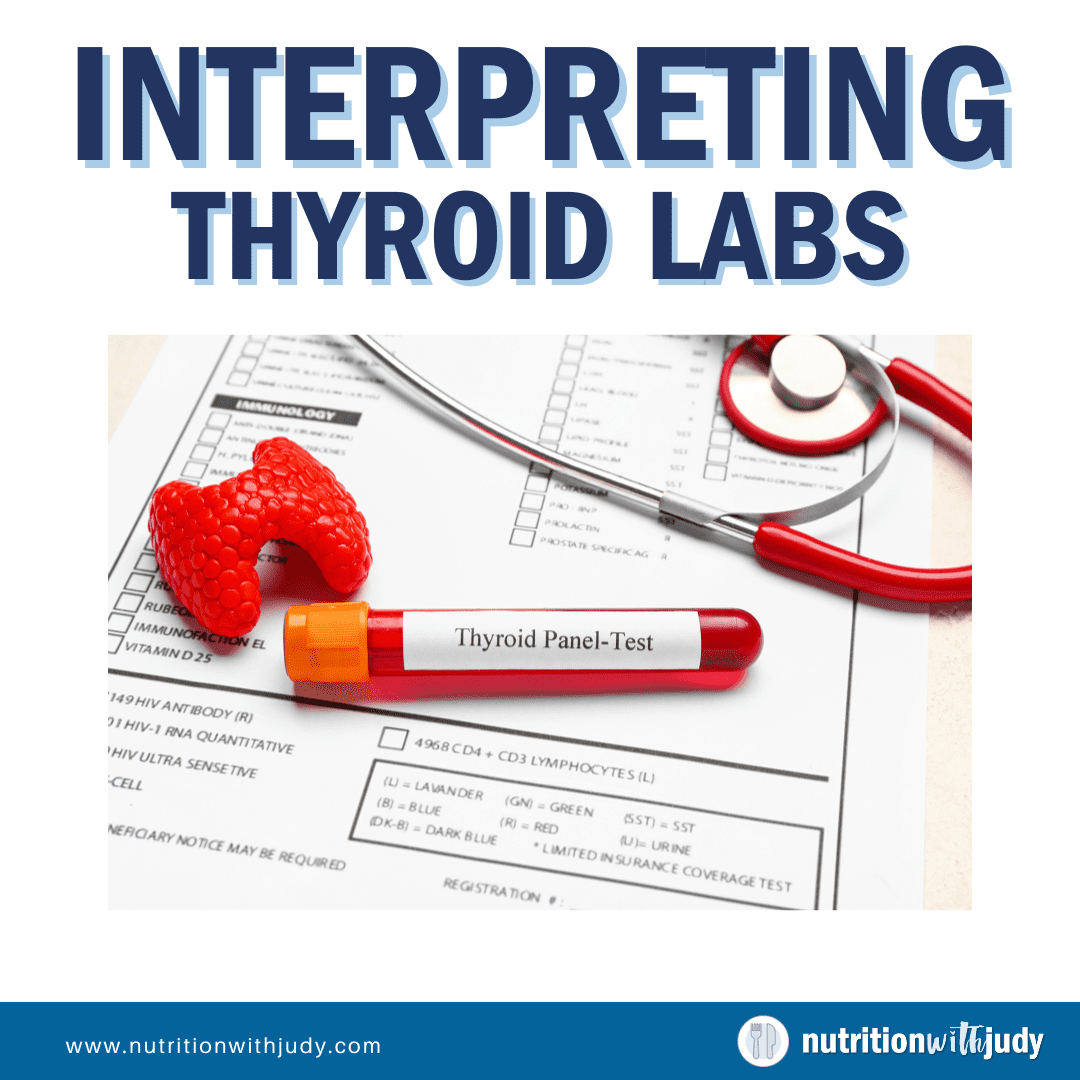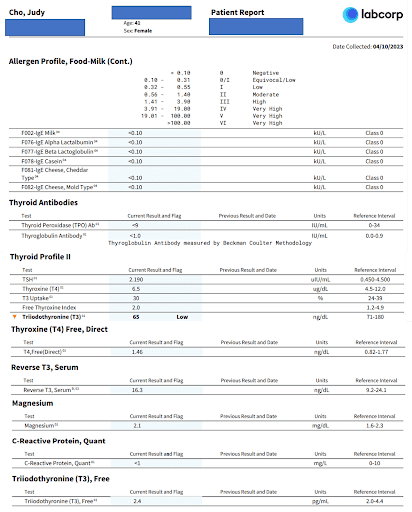

Interpreting Thyroid Labs


Original Publish Date: 5/20/23
In the functional medicine space, we use more stringent labs for optimal health. We consider standard ranges subpar as it’s the average of the many, and unfortunately, the many are now seemingly more unhealthy.
We see numbers inch up for the diagnosis of Type 2 diabetes. Not too long ago, the diabetic criteria were anything above 120 mg/dL fasted. Now it’s 126 mg/dL. You can read a simple explanation of reference intervals and ranges, here.
The health of the sample population matters. The lab that runs the tests matters. Any conflicts of interest defining what is and isn’t healthy also matter, but that’s a topic for another day.
—
The main thyroid hormone is TSH. TSH is basically the messenger hormone of the thyroid gland. The pituitary gland (also impacted by CIRS and trauma) stimulates the thyroid to produce more thyroid hormone via TSH.
So conventional practitioners use TSH to determine the state of thyroid function. More specialized thyroid practitioners use thyroid plus all the other T hormones (e.g., T3, T4, Reverse, and Frees) to determine thyroid function. And even more sophistical thyroid practitioners look at mineral status and iron, as well as body temperature to get an even more well-rounded view of thyroid health.
But even with all the comprehensive thyroid tests, it’s often not helping the root-cause issues of thyroid imbalances.
In a 2022 Review Paper, treating subclinical hypothyroidism with levothyroxine did not improve the participants’ quality of life. Subclinical is defined as TSH above 4.5 with normal T4 levels.
In August of 2022, a retrospective cohort study with 412 participants showed that after 3 years of having subclinical hypothyroid, 95% never became overtly hypothyroid (TSH above 10 and abnormal T4 levels).
- After 3 years, 46.5% of the 412 participants normalized thyroid levels without any intervention
- 45.8% remained subclinical hypothyroid
- 4.6% became fully hypothyroid (overt hypothyroid)
Almost half of the 412 mild hypothyroid participants normalized thyroid levels after 3 years. In the real world, how many of these 412 participants would have started thyroid medication?
Of those 412 that may have started thyroid meds, how many would even notice a relief in symptoms? (Because many don’t.)
I’m skeptical about getting on thyroid medications so quickly. The question should always be why is there an imbalance?
Low T3 is not fixed with just more T3. TSH is not fixed with just thyroid glandular or meds. Thyroid antibodies are not just fixed by removing dairy. Yes, these factors can help as a bandaid but the question should always be why?
So many of my clients are sensitive to dairy and their thyroid antibodies go up. I was curious and tested myself (see below). Nowadays, I have some type of dairy every single day. So if I’m okay, why are my clients sensitive? What is the underlying reason?


While not everyone with hypothyroidism or Hashimotos struggles with Chronic Inflammatory Response Syndrome (CIRS), we are finding there is some sort of relationship. You can read one small study here.
If hypothyroid (and thyroid antibodies) can be exacerbated by environmental illness such as CIRS, could healing the root cause help someone sensitive to dairy eventually consume dairy?
Chasing lab numbers is not the answer. If it was, why do most people on thyroid meds never find “the right dosage” that helps them feel better long-term?
And sex hormones are no different.
I plan to dig into this deeply with the revised version of Carnivore Cure.
TLDR: If you’re on thyroid meds because of slightly imbalanced thyroid markers (and assuming the fatigue and weight gain are thyroid-related), I’d consider doing all you can with diet and lifestyle before getting on meds. The body keeps the score and the body absolutely has a balance sheet. Here’s one study that shows increased cardiovascular risk with thyroid medications.
**This is not medical advice but purely my inquisitive musings as a lifelong learner.
Ps. Feel free to share my thyroid markers with people who believe “Carnivore or Keto RUINS your thyroid!” This is 6 years meat-based (and 7 years low-carb). The only thing I supplement for thyroid health is Lugol’s 2% iodine a few times a week. (You need iodine for every cell in your body). All iodine content is here.
In health,
Judy




Elizabeth T
March 11, 2024 at 6:41 pmWhat about if you have already been on medication but are now living a healthier lifestyle? I switched to carnivore 14 months ago. I feel incredible. I would like to go off of my medications entirely. Through the past year I had high TSH but stable or normal range T4 and T3. It has all normalized now. I would like to work with my healthcare provider to decrease my dose. What would you suggest I do to share information with her?